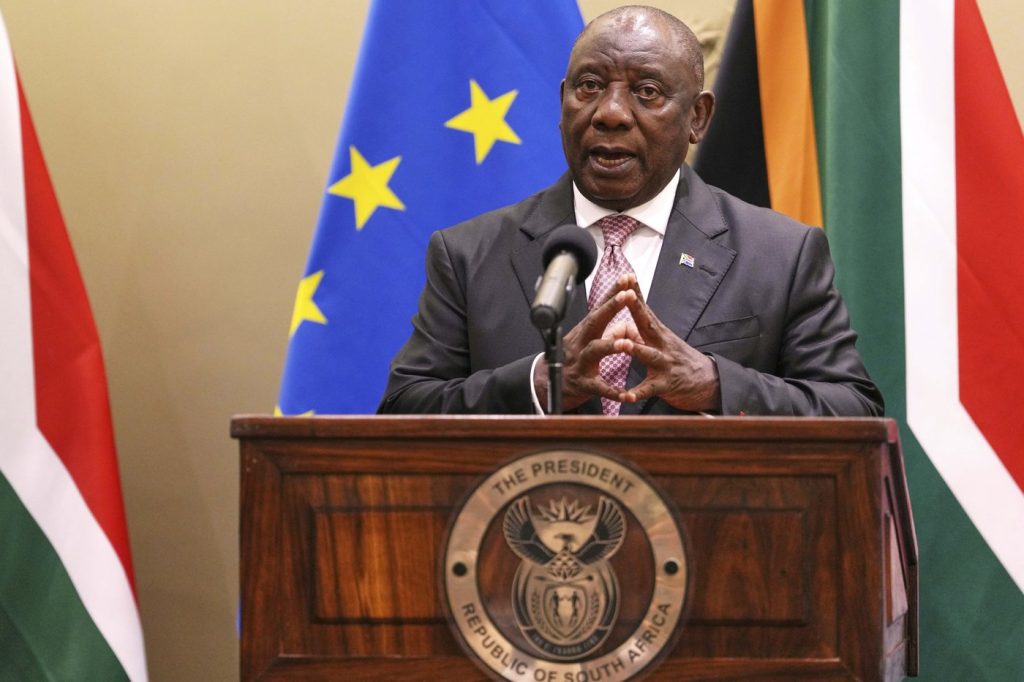U.S. President Donald Trump is set to host South Africa's President Cyril Ramaphosa at the White House on Wednesday. This meeting comes amid heightened tensions following Trump's accusations against the South African government, claiming it is racist towards white people and alleging a "genocide" against minority white farmers in the country. The accusations have sparked significant controversy and have led to a strained relationship between the two nations, the worst since the end of apartheid in 1994.
In response to Trump's allegations, the South African government has firmly rejected these claims. President Ramaphosa has expressed a desire to use this meeting as an opportunity to clarify what he describes as "damaging mischaracterizations" and to improve South Africa's relationship with the United States. This is particularly critical, given that it represents Trump's first meeting with an African leader since returning to office.
Some South Africans are concerned that Ramaphosa may be publicly criticized or "Zelenskyy'd" during the meeting. This term refers to the public chastisement that President Trump gave to Ukrainian President Volodymyr Zelenskyy in a previous Oval Office meeting. Ahead of the meeting, a White House official indicated that Trump's discussions would likely include condemning politicians who promote what he perceives as "genocidal rhetoric," classifying farm attacks as priority crimes, and addressing race-based barriers to trade that could deter investors.
Trump's criticisms of South Africa first surfaced in early February when he used his platform on Truth Social to accuse the government of seizing land from white Afrikaner farmers and committing "massive Human Rights VIOLATION" against the white minority. These allegations culminated in an executive order months later, which suspended all U.S. assistance to South Africa. Recently, Trump escalated his rhetoric by labeling the situation a "genocide," a claim denied by both the South African government and the farmers allegedly affected.
While some violent incidents involving white farmers have occurred, the South African government asserts that these events are rooted in broader crime issues across the country and are not racially motivated. They maintain that no land has been seized from white farmers, labeling the claims as misinformation.
Trump is also expected to confront Ramaphosa regarding South Africa's contentious land expropriation law, which has sparked criticism within the country and is currently under legal scrutiny. This law permits the government to take land without compensation in certain circumstances. South African Agriculture Minister John Steenhuisen, who is part of the delegation in Washington, acknowledged the complexities of the law but refuted claims of land seizure, stating that these assertions were unfounded.
Additionally, influential business figures like South African-born Elon Musk have voiced criticism of their homeland's policies, particularly regarding affirmative action laws. Musk contends that these policies, which require a portion of foreign company ownership to be held by Black shareholders, impact business operations to the detriment of white business owners. Reports indicate that South Africa may be willing to negotiate amendments to these laws to accommodate Musk's Starlink satellite service.
As the meeting approaches, Ramaphosa addressed concerns about potential public humiliation during his interaction with Trump. He expressed confidence in representing South Africa positively and noted that the nation maintains its dignity during international engagements.











